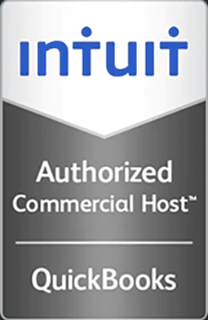Is Bring Your Own Device (BYOD) a Security Concern in Regards to DaaS? (Part 3)
By Eric Wilson
In the previous installment in this series we explored BYOD, how companies are reacting to its popularity, and defined the basics of Desktop-as-a-Service (DaaS). In this third part to the series we will investigate some of the security concerns with BYOD, and take a look at the benefits of cloud hosting DaaS as a solution. We will also examine some of the advantages of DaaS security solutions and how they benefit organizations now and in the future.
Data security is and will always be a chief concern for organizations that deal with sensitive data. BYOD brings with it a special set of circumstances that have businesses scrambling to keep up. Efforts to eliminate BYOD could be successful, although likely a counter-productive maneuver that will limit a company’s ability to compete. DaaS is an effective option for these organizations as well, offering the same security solutions, and the attractive scalability of cloud computing. For organizations that choose to embrace the benefits of BYOD, cloud hosting DaaS addresses these circumstances. A few of the more pertinent security issues are as follows:
How do you track and control access to corporate data with this kind of hardware proliferation? One of the main difficulties with BYOD is that the personal devices being used and the software that is used on them will always be in a constant state of change. Most companies just do not have the technical expertise to handle this issue on their own. Or the time for that matter. By outsourcing to a cloud hosting facility and virtualizing the desktop, organizations will have access to enterprise-grade security and a working relationship with a cloud service provider (CSP) that can assist with the fine-tuning of security protocol.
How do you eliminate the risk of having corporate data accessed from lost or stolen devices? This too is a major risk with BYOD. Not only is the hardware not being provided by the company, putting them at greater risk, but in the mobile world, the hardware is out there with sensitive data. This is where cloud hosting DaaS as a solution becomes a significant advantage. By hosting the desktop remotely, there is no corporate information from the data center stored on any of these devices. If an employee loses their laptop or other personal device, there is no risk of data theft. There is no data on the device to be stolen.
This brings up the legal issues with BYOD. If a company chooses to allow corporate software and data to reside on individual personal machines, they may choose to also have the right to remote wipe or inspect these personal devices from time to time. This opens up a whole host of legal issues that just seem unnecessary. Instead, keep the private data and software on these devices separate from the corporate data.
The ability to communicate effectively and work efficiently is certainly the driving force behind BYOD from an employee point of view. While there is no panacea for every security issue today, cloud computing and DaaS offer solutions that address both current and future issues. The most important of these security solutions is how data is accessed, how security protocols are controlled and automated, and where corporate data is stored.
If you’re interested in learning how the IV DaaS solution can optimize your remote or hybrid work model, contact us at 866-257-8455 or visit www.InfinitelyVirtual.com/DaaS/.





